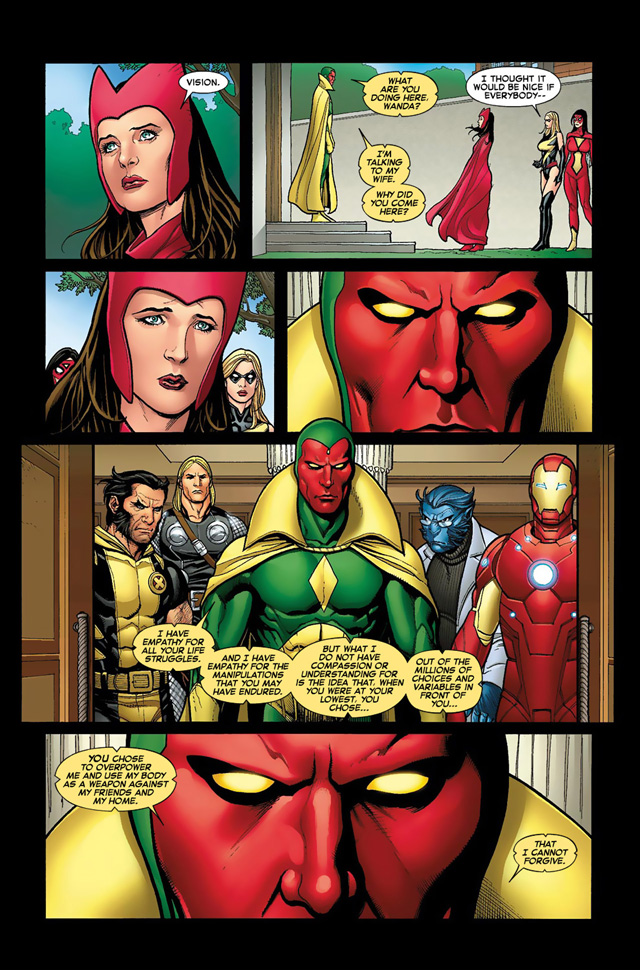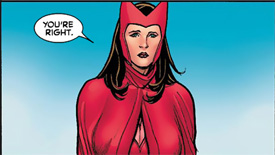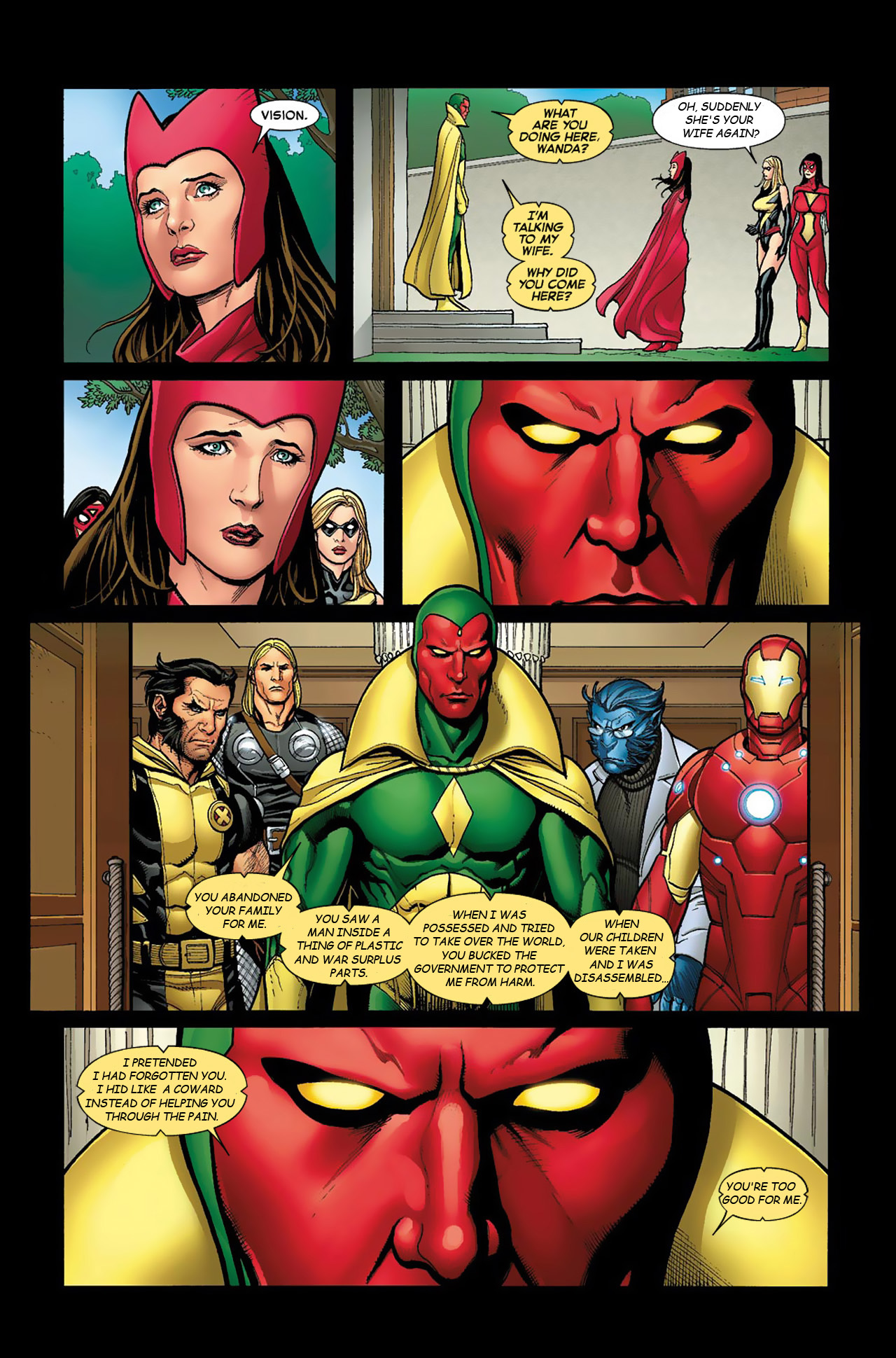The tell-off. It’s one of our favorite dramatic devices, isn’t it? It’s so satisfying. Great tell-offs which come to mind include everything from Thomas Jefferson’s Declaration of Independence to Louise Jefferson telling off the snotty bigot-of-the week; from Flo telling Mel “Kiss my grits!” to James T. Kirk telling Khan to… Oh yeah, he just said “Khhhhhaaannnnnn!”
But we knew what he meant, and we loved it. (And wow, I just dated myself!)
But there’s a problem with most tell-offs, excepting Thomas Jefferson’s… they don’t actually accomplish a damn thing. In most cases, they don’t even make us feel better. They may seem satisfying, if you don’t think too hard; but in truth…? Telling off someone, be it a co-worker, family member or friend, creates animosity and hurt feelings; it damages relationships and often makes working or living together impossible. Really, it’s something from the realm of wish-fulfillment fantasy (“I’d like to tell him off!”) that has no place in practical reality.
So should it really be one of our favorite dramatic devices?
For me, tell-offs make the teller-offer look desperate, as Admiral Kirk was when he screamed from the belly of an asteroid, knowing his scream would accomplish exactly nothing. People had died and more would die, and all the telling off in the universe wouldn’t change that. So Admiral Kirk’s scream was a good use of telling off. It showed how powerless he was, made us sympathetic, conveyed to us that the stakes of the game were high. It reminded us that just venting our anger and frustration is pointless. We have to find a way out of the asteroid of frustration so we can actually make a change for the better in the universe.
Sitcom tell-offs, on the other hand, make us believe that there’s power to be found in letting loose on our enemies, spewing bile, venting our spleen, and in other disgusting ways manipulating our bodily secretions. These tell-offs sell us a bill of goods: talk isn’t cheap. Displaying your anger and disapproval gives you the moral high-ground.
T’ain’t so, kids.
Warning: comic-book-geekery ahead!
Today I react to a tell-off that I find unsatisfying. I believe it’s offered by the storyteller in hopes that the audience will cry “it’s about time!” I found it depressing, discouraging and empty of any genuine feeling.
To wit, in the first issue (or the first issue less one) of Marvel’s much-ballyhooed event series AvsX (Avengers vs. X-Men), the Vision tells off his wife (ex-wife, we’ve believed for twenty years), the Scarlet Witch. Why? Well, about ten years ago, Marvel decided to boost sales on The Avengers. This is a title originally conceived in the 1960s as an answer to DC’s Justice League of America. The idea being, “Hey, kids! Look! All your favorite heroes in one title!” So it starred Thor, Captain America, Iron Man and, for a couple issues, the Hulk. And then Marvel’s editor, Stan Lee, realized (wisely) that it’s pretty hard to maintain credible continuity when you’re writing about the same characters in two different places. So they turned The Avengers into a book about second-stringers, characters who didn’t already have their own title. The heavy hitters came and went, but the stories focused on the also-rans.
This formula worked for, oh, about forty years. Then Marvel decided it didn’t work anymore. So they plotted an “event series” in which one of The Avengers most long-standing second-stringers, the aforementioned Scarlet Witch, lost her mind one day while sipping wine by the pool and used her reality-warping powers to kill four or five of her friends, including her former husband, the Vision. Apparently she had a delayed reaction to the decades-gone death of the couple’s twin sons and decided to kill all her friends in her grief. Endless tiresome plot complications followed, with the Witch eventually losing her memory and going to live a private life in an undisclosed location. We’d heard the last of the Avengers’ leading couple for many years. Then Gray’s Anatomy writer Allan Heinberg crafted a story which explained that the Witch had, in fact, been manipulated by premiere Marvel villain Victor Von Doom, who wanted her chaos powers for himself, and used her as a tool to get them.
An elegant explanation which saved a character. Almost…
Across town, the Vision, an android, had been unceremoniously resurrected. One assumed that this was preparatory to a reunion of the two. And, of course, you’d expect there’d be some angst. What you didn’t expect – at least I didn’t – was an excuse for a tell-off.
You see, it seems Marvel has decided that all of its characters are permanently angry and painfully stupid. They’d rather rant and rave about things that have gone wrong than try to understand them. They’d rather commit a revenge killing than try to understand someone’s motives. And, if you tell them that someone was under outside control and couldn’t stop themselves, they understand… and still hate that person and heap guilt on them. It makes not one damn bit of sense, and the message being relayed is completely unclear. But after all, this is the same company that made Tony Stark, Iron Man, into a fascist dictator a few years ago with almost no explanation, and expected him to have the same fan following as before.
So, despite knowing what happened to his wife or ex-wife or whatever, Vision decides he’s pissed, and that the most important thing he can do is tell her off. Never mind the fact that the world has turned against the woman he once claimed he loved. Never mind the fact that her failings were tied to the deaths of their children. Never mind the fact that his children are now alive, and he’s expressed no interest in seeing them! He’s pissed, and he’s damn well gonna tell that woman off, because that will solve… nothing.
Which seems to be about par for Super Heroes in 2012. They don’t solve anything, but they look great not doing it, and they have clever, witty dialogue to boot.
This is entertainment?
Below is a scan of the tell-off itself, which I reproduce here in very small part for purposes of review. Following is what I believe, with a grain of self-analytical thought, the Vision could have as easily said. Neither is satisfying. I don’t approve of either; but hopefully they balance each other.
Yeah. Another negative review. But Marvel has urinated all over characters I grew up loving. So, if tell-offs are the order of the day, here’s mine.
Does it make me feel better? Does it help? Hmm… Maybe a little. What say, President Jefferson? Does my tell-off rate an exception? “When in the course of human events…”
Android events?
Mutant events?
Ah, hell, here’s some pictures. I’ll do something more relevant and clever next week.



